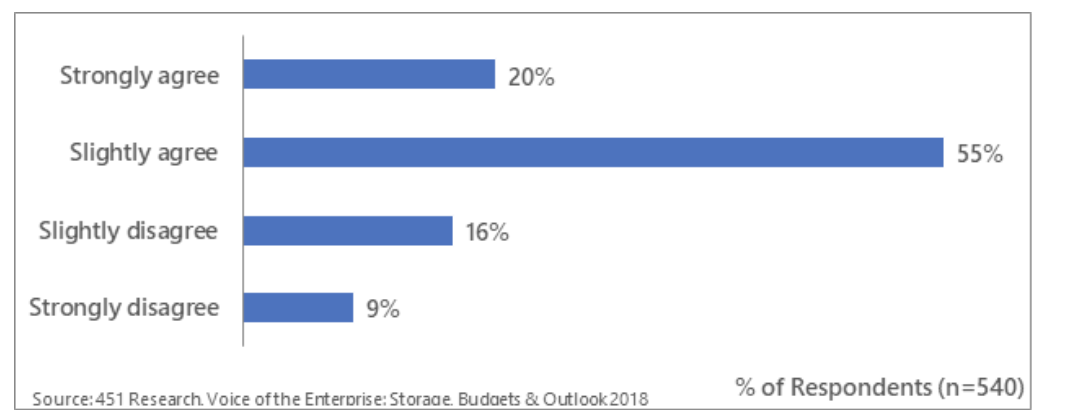Since the term ‘AIOps’ came into use in the monitoring sector a couple of years ago, there has been much confusion about what it means. We hear from users asking if they need it – a difficult question given that the answer depends on how you define it. Since there isn’t a broadly accepted definition, a range of vendors now market their products as AIOps offerings, even though these products cross subsectors and may not be directly competitive. We see vendors in APM, infrastructure monitoring, event analytics, network performance monitoring, log analytics and other areas using AIOps in their marketing materials. Since those products don’t compete directly, the only correct answer to the question: “Do I need an AIOps tool?” is “It depends.”
At 451 Research, we recommend getting specific in order to avoid some of the confusion. In fact, the question shouldn’t be “Do I need AIOps?” Instead, the questions should be:
- “How can I reduce the time it takes to find the cause of a performance problem?”
- “How can I reduce alert fatigue?”
- Or, “How do I know if a code push led to a performance issue?”
Once you identify a set of challenges you’re looking to address, you can begin to seek the kinds of tools that might help.
We prefer to think of AIOps broadly, as any application of machine learning or artificial intelligence in tools that serve operations use cases. It is most useful to think of it as technology employed by tools, rather than a category of tool or a subsector. For instance, machine learning in monitoring enables anomaly detection, which discovers when a system is behaving differently than normal, potentially indicating that a performance problem is occurring or may occur. Machine learning also enables alerts to be correlated in a way that reduces challenges associated with alert storms. Once you narrow down which ML-driven capabilities may solve the problems you face, you can begin to determine which tools offer the capabilities you need.
Until organizations are able to more clearly understand exactly how they might benefit from AIOps, they are likely to continue to be ambivalent about it. In a recent survey, we asked storage professionals if they thought the addition of machine learning to vendor products would simplify management, and 25% slightly or strongly disagreed, with 55% only slightly agreeing.
Ambivalence toward machine learning

Do you agree or disagree with the following statements about machine learning/AI capabilities: The addition of machine learning/AI capabilities to vendor products would simplify IT management at my organization.
However, we think that most organizations that are embracing modern technologies and architectures such as containers, microservices and hybrid cloud will benefit from tools that employ machine learning. These complex, dynamic environments generate very large volumes of operations data, too much for humans to manually analyze. Machine learning that enables techniques like anomaly detection can quickly identify important data in that large data set. By separating the hype from the real benefits of machine learning and artificial intelligence in IT ops, we expect more businesses to take interest in tools that use the technologies.




